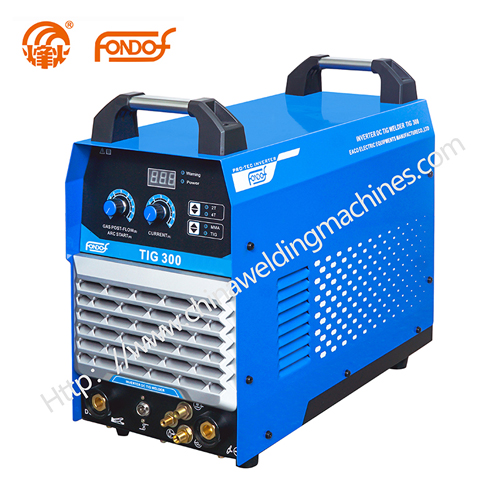Aug. 02, 2023
Machinery
Pulse TIG welding machines, also known as Pulsed Gas Tungsten Arc Welding (GTAW) machines, are advanced welding equipment that offers precise control over the welding process. In this comprehensive article, we will explore the features, advantages, and applications of pulse TIG welding machines. We aim to provide our readers with the most insightful and valuable content, and this article will help you gain a deeper understanding of pulse TIG welding machines.

Pulse TIG welding is a welding process that uses intermittent pulses of current to create welds. This technique allows welders to alternate between high and low currents rapidly, resulting in several benefits, including reduced heat input and better control over the weld pool. Pulse TIG welding is commonly used in various industries where precision and control are critical, such as aerospace, automotive, and fabrication.
One of the primary advantages of pulse TIG welding machines is their ability to control the amount of heat applied to the workpiece. By pulsing the current, the welder can effectively manage the heat input, preventing overheating and reducing the risk of distortion in the material. This feature is particularly beneficial when working with thin sheets or delicate materials.
Pulse TIG welding produces high-quality welds with excellent aesthetics. The pulsed current allows for better control over the weld puddle, resulting in smoother and cleaner welds. The reduced heat input also minimizes the size of the heat-affected zone, ensuring a stronger and more reliable weld.
Welding thin materials can be challenging, as excessive heat can easily cause burn-through or warping. Pulse TIG welding machines excel in such applications, as the pulsed current provides precise control over the welding process, making it easier to work with thin sheets without compromising structural integrity.
Pulse TIG welding can significantly improve productivity compared to conventional TIG welding methods. The reduced heat input and faster welding speeds mean that welders can complete projects more efficiently. Moreover, the need for minimal post-weld cleanup adds to the overall time savings.
Certain metals, such as titanium and aluminum, are known as reactive metals and can be challenging to weld due to their susceptibility to oxidation. Pulse TIG welding machines can effectively weld reactive metals by using the pulsed current to manage the heat input and prevent oxidation, resulting in strong and reliable welds.
Pulse TIG welding machines find application in various industries and welding scenarios due to their versatility and superior performance. Some common applications include:
The aerospace industry demands precision and reliability in welding, making pulse TIG welding the preferred choice for joining critical components in aircraft construction. The ability to weld lightweight materials like aluminum with exceptional control makes pulse TIG welding invaluable in aerospace applications.
In the automotive sector, pulse TIG welding is used for welding exhaust systems, body panels, and other components where precision and appearance are essential. The reduced heat input helps prevent distortion and maintains the structural integrity of the welded parts.
Pulse TIG welding is widely used in fabrication shops and metalworking industries for various applications, including welding stainless steel, copper, and brass. The ability to weld thin materials and achieve clean, aesthetically pleasing welds makes pulse TIG welding ideal for custom fabrication projects.
In pipe welding, pulse TIG welding machines offer significant advantages. The reduced heat input minimizes the risk of burning through the pipe walls, ensuring a strong and leak-free weld joint.
Pulse TIG welding's precise control and ability to create beautiful weld beads make it a favorite among artists and metal sculptors. The welding technique allows for intricate designs and detailed work, bringing creative visions to life.
Pulse TIG welding machines have revolutionized the welding industry by providing welders with enhanced control, reduced heat input, and superior weld quality. Their versatility and application in various industries make them a valuable asset for professionals seeking precision and efficiency in their welding projects.
Previous: Advantages and Applications of Rolling Machines
Next: What Are The Benefits of Using Induction Pipe Bending Machine?
If you are interested in sending in a Guest Blogger Submission,welcome to write for us!
All Comments ( 0 )